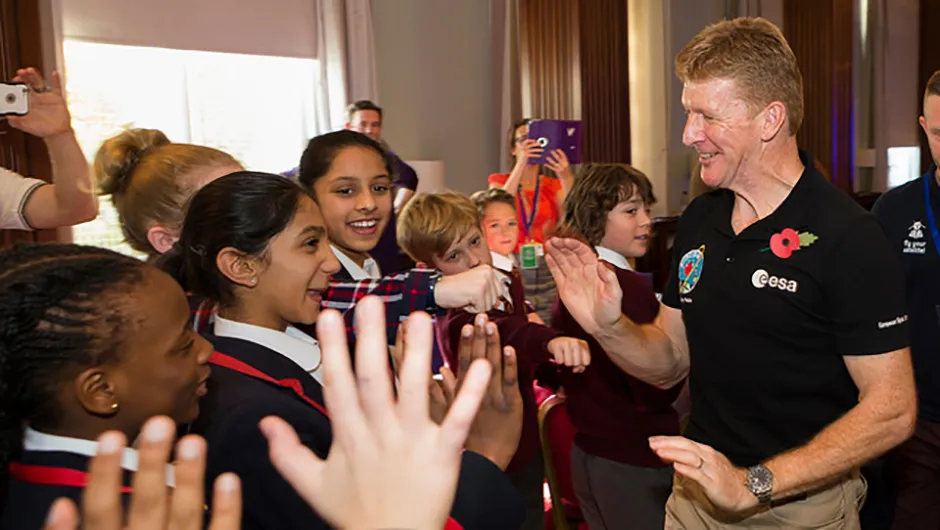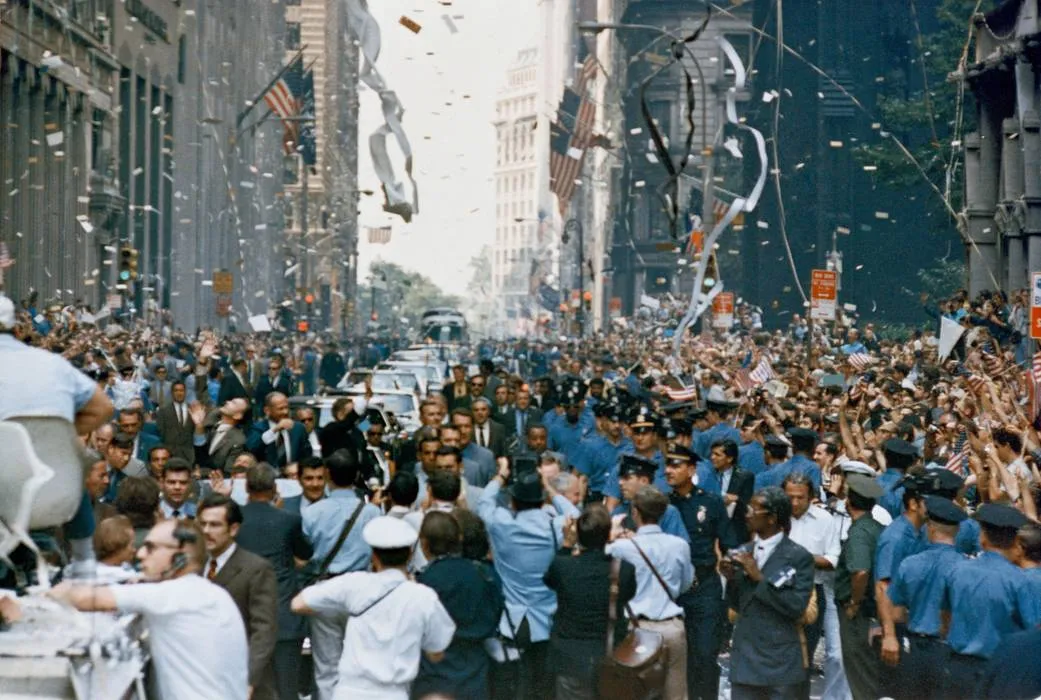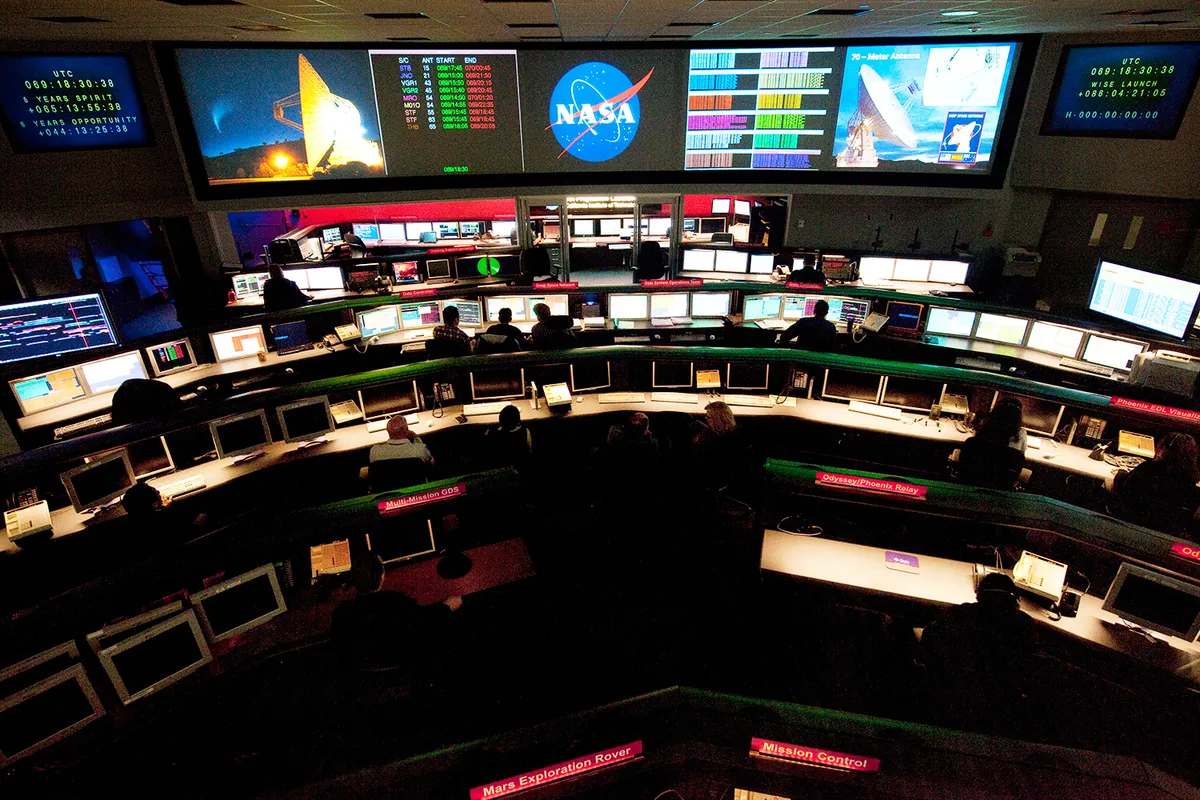The Apollo astronauts were arguably international celebrities in their day. This is especially true for the likes of Neil Armstrong and Buzz Aldrin, who became the first human beings to set foot on the Moon during the Apollo 11 mission.
To this day, Apollo astronauts tour the conference circuit, appearing at book signings and space conventions and speaking to packed rooms of people longing to hear their stories about what it's really like to travel into space.
But can the same be said today?
While those of us interested in spaceflight will instantly recognise names like Tim Peake, Samantha Cristoforetti, Scott Kelly and Peggy Whitson, does the public still pay as much attention to what's going on up in low Earth-orbit?

What about the younger generation? Can astronauts still compete with film stars and pop stars when it comes to getting the attention of young people?
One recent study claims that, in contrast to the Apollo generation, younger people are out of touch with the realities of the space industry, and that it's not something they pay much attention to.
We spoke toRajeev Suri, CEO of Inmarsat, the British satellite telecommunications company that conducted the survey, to find out whether young people still care about space.
If you're starting out in your career and want to get into the space industry, read our guide How to land a job in astronomy or the space sector.

Tell us about your report, What on Earth is the value of space?
The report is the largest ever survey of public perceptions of space globally and included more than 20,000 people in 11 countries.
The reason we did it is because we wanted to understand the public perception.
What do people feel about space?
Do people understand that space is adding value to their daily lives, what it does today and what it will do in the future?
We want to understand what people are fearful of regarding space.
We also wanted to know how people feel about space in different generations, because we want to recruit more people into our industry.

Is Generation Z taking less interest in space?
We found in the survey that those aged 18 to 24 seem to be guided more by science fiction and movies than a real understanding of what is happening in space.
Those who lived through the Space Race were more excited because of the Apollo missions.
But now what we do in space has become somewhat invisible: space is used for weather forecasting, navigation and communications, connecting the unconnected, humanitarian missions, disaster recovery, in-flight Wi-Fi and agriculture.
I think since it’s become more commonplace and invisible in our daily lives, young people seem to not have an understanding of what the space industry does.
What topics are Gen-Z interested in around space?
There are two topics that came up in the report.
The first was a fear of space – an overwhelming majority felt fearful of space, space junk and space debris, while others were unaware of that.
The other topics that came up were aliens and space tourism; space being a billionaire’s playground as opposed to something that helps us on a daily basis.
We saw that 21% of people associated space with aliens, against just 8% who associated the space industry with what it really does.

Were these findings surprising?
It was surprising that 97% of people said they were fearful about the impact of the space industry, and about 35% globally felt hopeful about space.
I think it’s reasonable that people have worries about space junk and damage to the Earth’s atmosphere – I didn’t know people were aware of that.
I was also surprised by the lack of awareness of what space does. I think maybe in the days of Apollo people were more excited by the idea of space.
Is this a wake-up call to the space industry?
I think it’s important for us in this industry to do something about it because you need public trust.
We want to recruit more people into the industry, we need people to be more aware of what space enables.
We also have a role to play in educating people and creating the right kind of awareness.

Could this result in fewer people going into the space sector?
I think I’m being realistic. We found from the survey that just 7% of people in the UK want to work in the space industry, and globally that figure is 14%.
That’s a concern because we want people to be attracted to our sector.
We also think that the more people are aware of what we do in space, the greater the public interest will be.
And that has a direct correlation, ultimately, to capital coming into the sector.
In some ways it’s not a bad thing that people think it’s invisible in our daily lives, but as an industry, we need to create a more powerful and relatable narrative about space, so that people understand what it does and what it really is about.
Read the full report at the Inmarsat website.
This interview originally appeared in the September 2022 issue of BBC Sky at Night Magazine.
